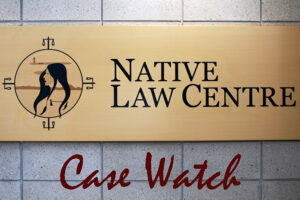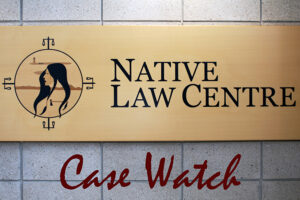First Nation granted stay of hearing fees for treaty litigation, until question of whether these are contrary to the Honour of the Crown can be resolved.
In the case of Yahey, the Blueberry River First Nation (BRFN) brought an application to stay hearing fees on the basis that there are unsettled legal issues surrounding the provincial hearing fee scheme. Procedurally, relief from fees can be sought either by way of a court order or an application based on undue hardship under Rule 20-5 of British Columbia’s Supreme Court Civil Rules. By way of background, this application came on the heels of an amendment to Rule 20-5 to allow for an undue hardship exemption from hearing fees. Justice Burke concluded that the stay ought to be provided.
BRFN’s position was that there are open questions as to whether it is dishonourable for the Crown to require First Nations to pay a fee to litigate their treaty rights. In addition, BRFN pointed out that conclusions from other ongoing constitutional litigation regarding the breadth of the term “undue hardship” (Cambie Surgeries Corp. v British Columbia) would bring greater clarity to its application for relief from fees. In determining whether or not a stay could be provided, Justice Burke applied the legal test set out in the case of RJR-MacDonald Inc. v Canada (Attorney General). This test requires a court to consider whether (a) there is a serious question to be tried; (b) irreparable harm will result if the stay is not granted; and (c) the balance of convenience favours granting the stay.
Justice Burke found that the application of this test favoured providing BRFN with the stay they sought. Justice Burke concluded that BRFN established there was a serious issue to be tried—that is, whether the Honour of the Crown demands Indigenous peoples to not pay a fee in order to have their constitutional rights adjudicated. This question was not addressed in Cambie Surgeries and remains unaddressed to date. Justice Burke went on to find that the irreparability of harm and balance of convenience in this case weighed in favour of providing the stay. She found BRFN would have to either allocate resources to pay the hearing fees, or bring an application for relief from paying the fees, or bring an application for relief on unsettled law. Further, she noted that if Cambie Surgeries could provide some guidance, then requiring the payment of fees would be an inefficient use of resources. Finally, Justice Burke raised a question of fairness of process. Citing RJR MacDonald, she indicated that a perception of unfairness might arise from the fact that losses associated with paying the fees prematurely might not be cured later. These factors meant that the balance of convenience weighed in favour of BRFN.





